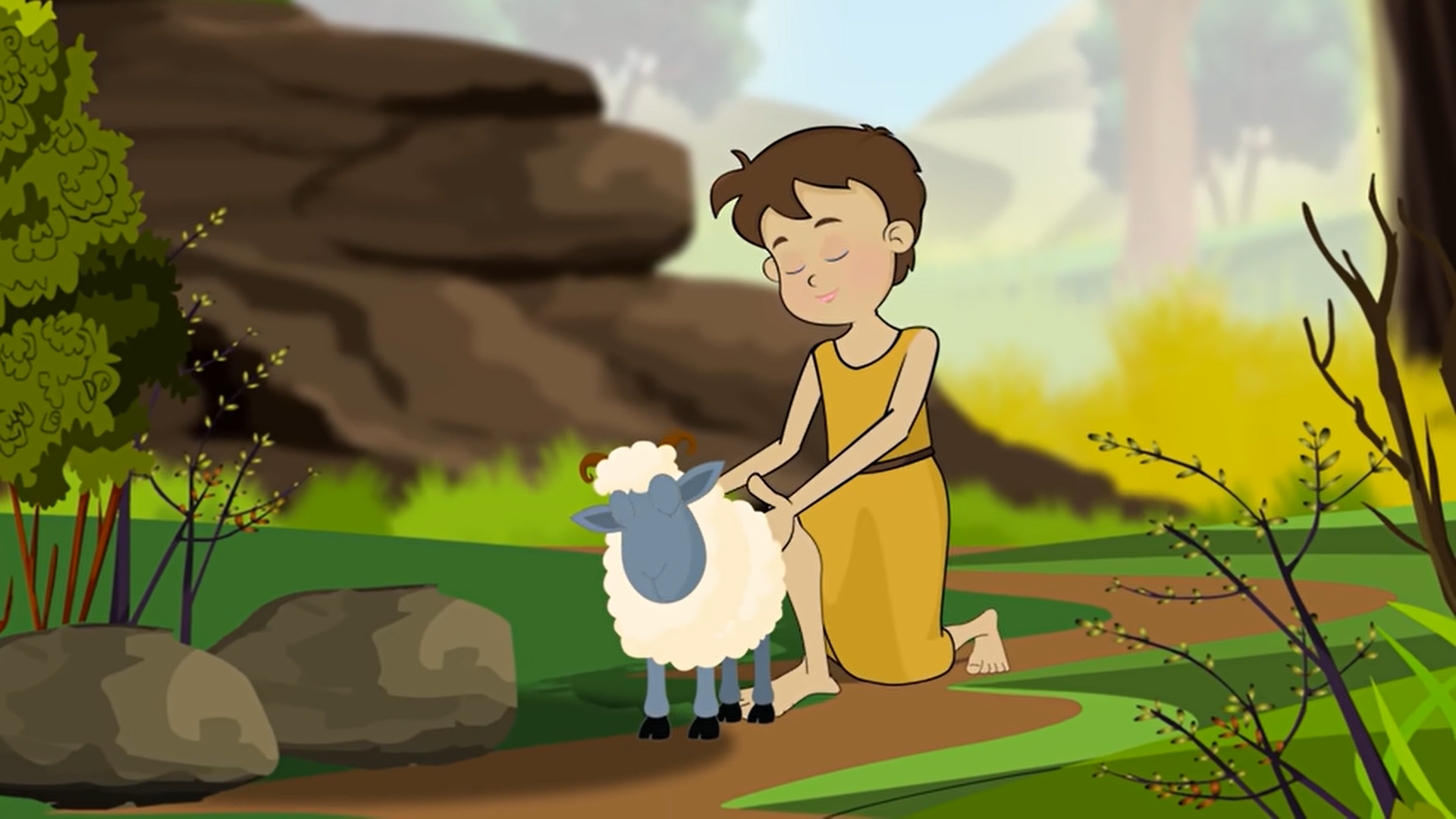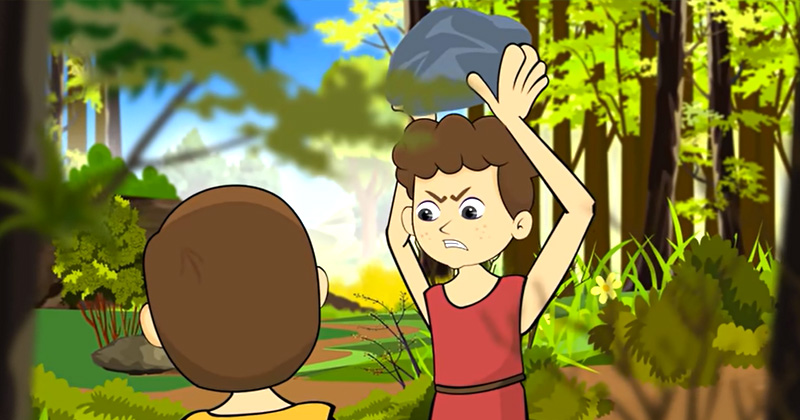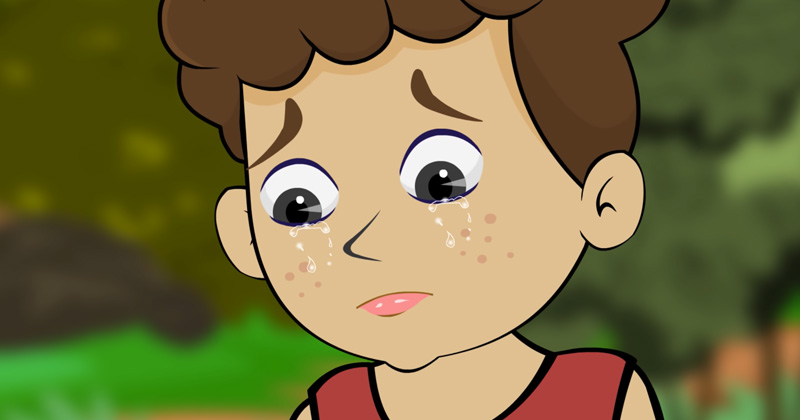In the distant past, shortly after Adam and Eve were expelled from the Garden of Eden, they were overwhelmed with sadness due to their disobedience towards God. They sought a way to express their deep remorse and approached God, inquiring about how they could demonstrate their repentance. God instructed them to offer a lamb as a sacrifice, which they promptly did.
As time went by, Adam and Eve became parents to two sons. Their firstborn was named Cain, while their second son was called Abel.
Cain chose farming as his occupation, tending to crops of vegetables and grains. Abel, on the other hand, became a shepherd, caring for the family's herds. Like many siblings, Cain and Abel had their disagreements, but their bond as brothers remained strong, and they deeply loved each other despite occasional conflicts.
Adam and Eve, as their parents, informed Cain and Abel about God's message regarding the sacrifice of a lamb as an expression of gratitude for all His blessings and as an act of remorse for their transgressions.
 Abel felt a great responsibility to make his sacrifice meaningful to God. He carefully selected his first and finest lamb and presented it as an offering to the Lord. Although it was difficult for Abel to part with his most prized possession, he believed it was essential to give his best and fulfill God's request.
Abel felt a great responsibility to make his sacrifice meaningful to God. He carefully selected his first and finest lamb and presented it as an offering to the Lord. Although it was difficult for Abel to part with his most prized possession, he believed it was essential to give his best and fulfill God's request.
Cain, however, regarded his younger brother's actions as somewhat foolish. He thought to himself, "Why is Abel giving up his best lamb? We need it more than God does. I'm certain God would be equally satisfied if we offered a weak or undesirable lamb. Besides, why does it have to be a lamb at all? As a farmer, I've had a bountiful harvest of wheat this year, and I have excess straw. Why don't I burn some of the extra straw instead? That way, nothing will go to waste."
At first glance, Cain's reasoning may seem reasonable, don't you think?
As Cain observed, Abel's lamb was completely consumed by the fire on the altar, while his own straw merely smoldered and failed to catch fire. This could only mean one thing—God favored Abel's offering.
Jealousy consumed Cain! Instead of taking the time to understand that his decision to sacrifice straw led to the disparity in God's response, he allowed anger towards his brother to take hold of him.
 Cain invited Abel for a walk, but still seething with anger, he struck his brother, causing him to fall lifeless to the ground.
Cain invited Abel for a walk, but still seething with anger, he struck his brother, causing him to fall lifeless to the ground.
Upon realizing the gravity of his actions, Cain's primary concern was not remorse for his brother's death but the fear of someone witnessing the act. He anxiously scanned the surroundings, relieved to find no one nearby.
Then, the Lord spoke, asking Cain, "Where is your brother?"
Cain shrugged indifferently and replied, "I don't know. Am I responsible for him?"
In response, God said, "Cain, how could you be so cruel to your only brother? He did nothing but give his best for Me, for his parents, and for you."
 Overwhelmed with grief, Cain collapsed to the ground, sobbing uncontrollably. Finally, he confronted the horror of his actions and had to bear the burden of knowing that he had murdered his younger brother for the remainder of his life.
Overwhelmed with grief, Cain collapsed to the ground, sobbing uncontrollably. Finally, he confronted the horror of his actions and had to bear the burden of knowing that he had murdered his younger brother for the remainder of his life.
Jealousy and resentment can lead to destructive actions and consequences. Cain's jealousy towards Abel's favored sacrifice blinded him to his own shortcomings and ultimately led to the tragic act of fratricide.